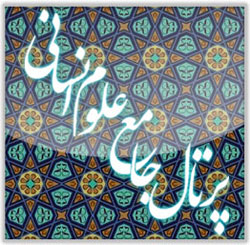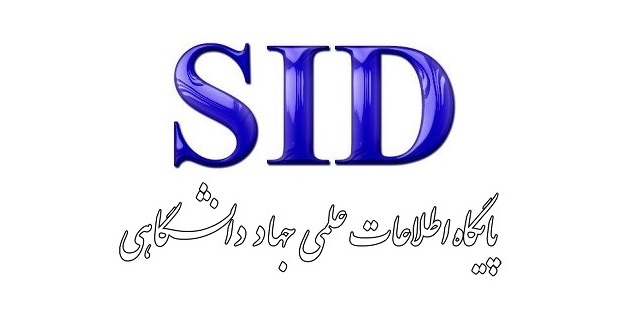Ethics from Ibn Miskawayh’s Perspective and Its Role in the Historical Development of Ta'ziyeh
Keywords:
Ibn Miskawayh, Ta'ziyeh, ritual practices, moral virtuesAbstract
The ideas and theories of Ibn Miskawayh play a significant role in the theoretical foundations of Islamic culture and civilization. A substantial part of his intellectual and theoretical foundations can be identified in the historical trajectory of Ta'ziyeh through textual analysis of the concepts and components he has discussed in this regard. Historical analysis of Ta'ziyeh can uncover important aspects of Ibn Miskawayh's thought, which are hidden beneath the apparent and explicit meanings of key concepts and terms. Findings indicate that during the Muharram ceremonies, individuals exit their daily individualistic lives and reconnect with the social world and collective conscience (Zarchini, 2016). For this reason, the social cohesion and moral authority intertwined with these rituals are strengthened and reproduced. Participation in the mourning rituals of Muharram fosters a sense of belonging to a collective identity and social distinction, connecting individuals to the collective conscience by setting aside their individualism. This is particularly evident during the first ten days of Muharram, when the freedom and free thinking inspired by the epic of Ashura are showcased throughout Islamic Iran.
Downloads
References
1. Miskawayh AiM. Tahdhīb al-Akhlāq wa Taṭhīr al-A'rāq. Edited by 'E. Hellāli ed: Tali'ah al-Nur; 2005.
2. Ya'qubi AiI. Tārīkh-e Ya'qūbī, Vol. 2 (Ya'qubi's History, Vol. 2). Translated by M. I. Āyati ed. Tehran: Elmi va Farhangi Publications; 2010.
3. Khazzaz Qomi Razi AQAiMiA. Kifayat al-Athar (Sufficiency of Traditions). Edited by S. A. Hosseini Kouhkamari ed. Qom: Bidar; 1981.
4. Bolookbashi A. Ta'ziyeh-khani: Adaptation and Incompatibility with the Cultural Structure of Society. Social Sciences Letter. 1998(11):31-41.
5. Bolookbashi A. Ta'ziyeh-khani: The Sacred Narrative of Misfortunes in Ritualistic Performance. Tehran: Amir Kabir; 2004.
6. Bolookbashi A. Nakhlistan: Allegorical Display of the Eternal Life of the Martyrs. Tehran: Cultural Research Bureau; 2004.
7. Bolookbashi A. The Social, Cultural, and Artistic Role and Function of Ta'ziyeh-khani in Traditional Iranian Society. Isfahan School Gathering, in the Collection of Performance Articles: Academy of Arts Publications; 2007.
8. Moghaddam P. Ta'ziyeh Center (Tehran Ta'ziyeh House): Islamic Azad University, Central Tehran Branch, Faculty of Art and Architecture; 2013.
9. Panahi F. A Comparative Study of Seneca's "Thyestes" and the "Story of Zahhak" from the Perspective of Theatrical Violence: Tarbiat Modares University, Faculty of Art; 2010.
10. Darikvand M. Investigating Social Factors Affecting the Tendency Towards the Popification of Lamentation (Nowheh) (Case Study: Views of Male Mourners in Khorramabad City Mourning Groups in 2015-2016): Ayatollah al-Uzma Boroujerdi University (r.a.), Faculty of Humanities; 2016.
11. Hosseini O. Investigating the Role of Traditional Civil Society on the Performance of Parties in Iran - The Era of the Islamic Republic of Iran: Ferdowsi University of Mashhad, Faculty of Administrative Sciences; 2016.
12. Bayza'i B. Performance in Iran. Tehran: Rowshangaran Publications; 2000.
13. Chelkowski PJ. Ta'ziyeh: Ritual and Performance in Iran. Translated by D. Hatami ed. Tehran: SAMT (Organization for Studying and Compiling University Humanities Books); 2005.
14. Alizadeh Moghadam AA. Conceptual Analysis of the Hero in Shahnameh and Shabihnameh Based on the Epic and Tragic World Theory of Aristotle's Poetics: Isfahan University of Art, Faculty of Advanced Art Research and Entrepreneurship; 2016.
15. Ma'rifat M. The Rhetorical Context of Ta'ziyeh with Emphasis on Ta'ziyeh Texts in Praise of Imam Hussein (a.s.): University of Kashan, Faculty of Literature and Foreign Languages; 2018.
16. Mousavi H. Recreations and Entertainments of the Qajar Period (1796-1847): Alzahra University (s.), Faculty of Literature; 2012.
17. Zāre S. Mobile Ta'ziyeh in Arak: History, Performance Methods, and Its Cultural and Social Contexts: Tarbiat Modares University, Faculty of Art; 2016.
18. Mazaheri Nia M. A Comparative Study of the Concept of Catharsis in Ta'ziyeh and Psychodrama with Emphasis on Jungian Views: Kamal al-Molk Institute of Higher Education; 2022.
19. Keshavarzi V. A Study of Ta'ziyeh Based on the Communication Models of Wilbur Schramm and David Berlo (with Emphasis on the Interacting Communication between Spectator and Performance): Tarbiat Modares University, Faculty of Art; 2021.
20. Sāleḥī Z. Mourning from the Perspective of Shi'a Sects from the Buyids to the Safavids: Kharazmi University, Faculty of Literature and Humanities; 2015.
21. Mamnoun P. Ta'ziyeh from the Western Perspective. Golestan-e Quran. 2001(58):27-32.
22. Haj Seyyed Javadi H. Zaynab: An Eternal Epic Above History. Tehran: Navid Publications; 1981.
23. Mardāneh F. Investigating Metallic Symbols (Alam-Alāmat) in Ashura Rituals: Tarbiat Modares University, Faculty of Art; 2014.
24. Qabbānī A. Investigating and Analyzing the Course of Historical Playwriting in Iran: Imam Khomeini International University (r.a.), Faculty of Literature and Humanities; 2019.
25. Homāyūnī S. Ta'ziyeh dar Īrān (Ta'ziyeh in Iran). Shiraz: Navid Publications; 1989.
26. Balashabadi E. The Cradle of Revival for Traditional Ritualistic Performances: Eshragh Institute of Higher Education, Faculty of Industrial Engineering; 2017.
27. Fattahi Dolatābādi N. Siyavash in Mythology and Literature: University of Kashan, Faculty of Literature and Foreign Languages; 2011.
28. Malekpour J. Tārīkh-e Namāyeš dar Īrān (History of Performance in Iran). Tehran: Tūs; 1984.
29. Farghani M. Darāmadi bar Ertebāṭāt-e Sonnatī dar Īrān (An Introduction to Traditional Communications in Iran). Tehran: Media Studies and Research Center; 2003.
30. Hosseinian SH. Qualitative Description of Religious Propaganda in Iran from the Perspective of Elite Propagators Selected by the Islamic Propaganda Office of Qom Seminary: University of Isfahan, Faculty of Literature and Humanities; 2020.
31. Zarchīnī R. Shi'ite Extremism (Case Study: The Divānegān-e Ḥusayn (a.s.) Mourning Group in Kashan): University of Tehran, Faculty of Social Sciences; 2016.
32. Bahonar N. Media and Religion: From Traditional Media to Television. Tehran: Islamic Republic of Iran Broadcasting (IRIB) Research Center; 2006.
33. Ibn Miskawayh AiM. Tahdhīb al-Akhlāq wa Taṭhīr al-A'rāq (The Refinement of Character and the Purification of Dispositions). Beirut: Dar al-Maktabat al-Hayat; 1981.
34. Tanhaei A. Meaning-Making of Ashura in the Political Culture of the Islamic Republic of Iran: Allameh Tabataba'i University, Faculty of Law and Political Sciences; 2018.
35. Le Bon G. Ravān-šenāsī-ye Tūdeha (The Crowd: A Study of the Popular Mind). Translated by K. Khajaviha ed. Tehran: Rowshangaran; 1990.
36. Shahīdī E. Darbāreh-ye Ta'ziyeh va Te'atr dar Iran (Majmou'eh Maqaleh) (About Ta'ziyeh and Theatre in Iran [Collection of Articles]). Edited by L. Taghian ed. Tehran: Nashr-e Markaz; 1995.
37. Sattārī J. The Social Context of Ta'ziyeh and Theatre in Iran. Tehran: Markaz Publishing; 2008.
38. Zarrinkoub A. Aristotle and the Art of Poetry. Tehran: Amir Kabir; 2013.
39. Mas'oudi S. A Sociological Explanation of the Elements of Carnivalesque in Performances of the Naseri Era. Sociology of Art and Literature. 2010;2(1, Serial 1):167-96.
40. Tavaziyani Z, Aghajani. Ibn Miskawayh's Virtue Ethics System and the Contribution of Religious Teachings to Its Formation. Quarterly Journal of Philosophical Contemplations. 2009;1(4):89-106.
Downloads
Published
Submitted
Revised
Accepted
Issue
Section
License
Copyright (c) 2024 آرش پژمان (نویسنده); محمدرضا شریف زاده

This work is licensed under a Creative Commons Attribution-NonCommercial 4.0 International License.










